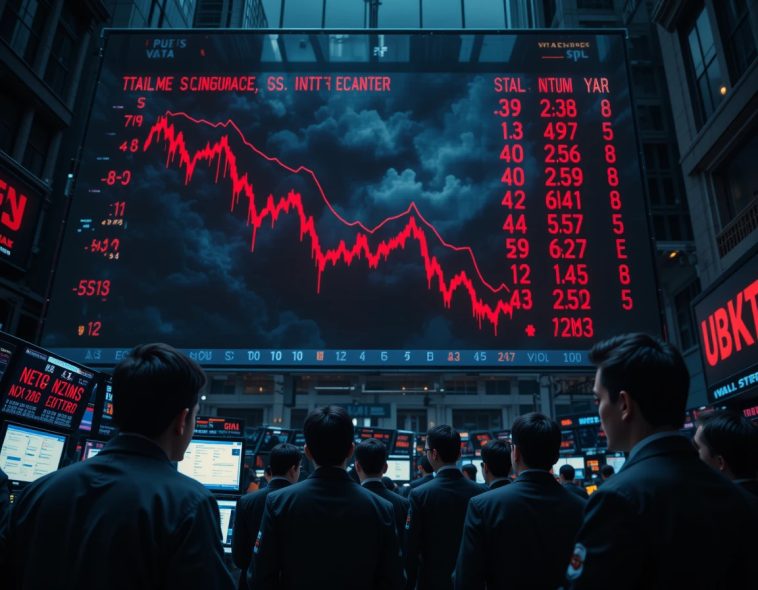The intensifying US-China trade war has triggered widespread economic angst across financial markets, leading to significant declines in stocks, the dollar, and oil prices. This economic angst reflects growing concerns about long-term damage to global growth as trade tensions between the world’s two largest economies reach new heights.
Economic Angst Spreads as Trade Relations Deteriorate
Economic angst enveloped every corner of Wall Street following the latest round of tariff increases. The S&P 500 dropped approximately 4.5%, the dollar fell toward its lowest level since October, and Treasury bonds experienced renewed volatility despite a successful $22 billion bond sale. This market turbulence represents a dramatic reversal from the previous day’s buying wave, which had been the largest since 2008.
Investors are increasingly concerned that the escalating economic angst could translate into tangible damage to corporate earnings, economic growth, and employment. According to a White House official, US tariffs on Chinese imports now total an unprecedented 145% after the latest hike.
Trade War Intensifies, Fueling Economic Angst
“Investors are sobering up and realizing that the US-China ‘food fight’ will probably get worse before it gets better,” said Michael Bailey at FBB Capital Partners. “We’re waking up to the fact that a 10% base tariff will sting, 90 days could fly by and then the pain of higher tariffs could return, and China is fighting back hard.”
The economic angst spreading through markets suggests growing skepticism that trade negotiations will conclude favorably despite White House National Economic Council Director Kevin Hassett’s assurances that discussions are “well advanced.” Initial signs of a global trade slowdown are already emerging as companies worldwide pause orders amid continuing trade tensions.
Long-term Economic Angst Takes Hold
“We still believe the anxiety around tariffs are alive and well. Volatility works in both directions — down and up. The path forward likely includes more market swings as we do not have a conclusion. In fact, we have the opposite, a likely extension of the tariff negotiation process,” explained Nathan Thooft at Manulife Investment Management.
The staggering US tariffs have triggered a tit-for-tat trade war that has unnerved global financial markets. “Nothing has been done to make investors feel a recession is less likely,” noted Chris Murphy, co-head of derivatives strategy at Susquehanna.
Impact on Inflation and Consumer Behavior
The economic angst has also raised concerns about tariff-driven inflation. “Tariff-driven inflation is still coming as a result of the trade war, even if the immediacy of the impact has been lessened,” said Vail Hartman at BMO Capital Markets.
Recent data showed US inflation cooled in March, but these figures were calculated before the widespread implementation of new tariffs. Price declines for discretionary services like hotel stays and airfares may signal that consumers are already cutting back on spending, potentially indicating deeper economic issues.
Corporate Response to Economic Angst
In corporate news, CarMax backed away from the timing of its financial goals, joining other companies indicating that uncertainty around the trade war is complicating long-term planning. Major US automakers saw their shares downgraded, with UBS Group cutting its recommendation on General Motors, citing tariff-related concerns. Goldman Sachs made a similar change for Ford Motor Co. as it lowered its outlook for US auto sales and global production.
Bridgewater Associates’ founder Ray Dalio observed that recent market turmoil has left investors with “an element of trauma or shock or fear,” adding that the situation “could have been handled better.”
If history serves as a guide, the road to recovery may be challenging. According to data compiled by Ryan Detrick at Carson Group, when the S&P 500 has dropped 15% or more at any point in a year, it has only recovered to end the period positive on three occasions.



